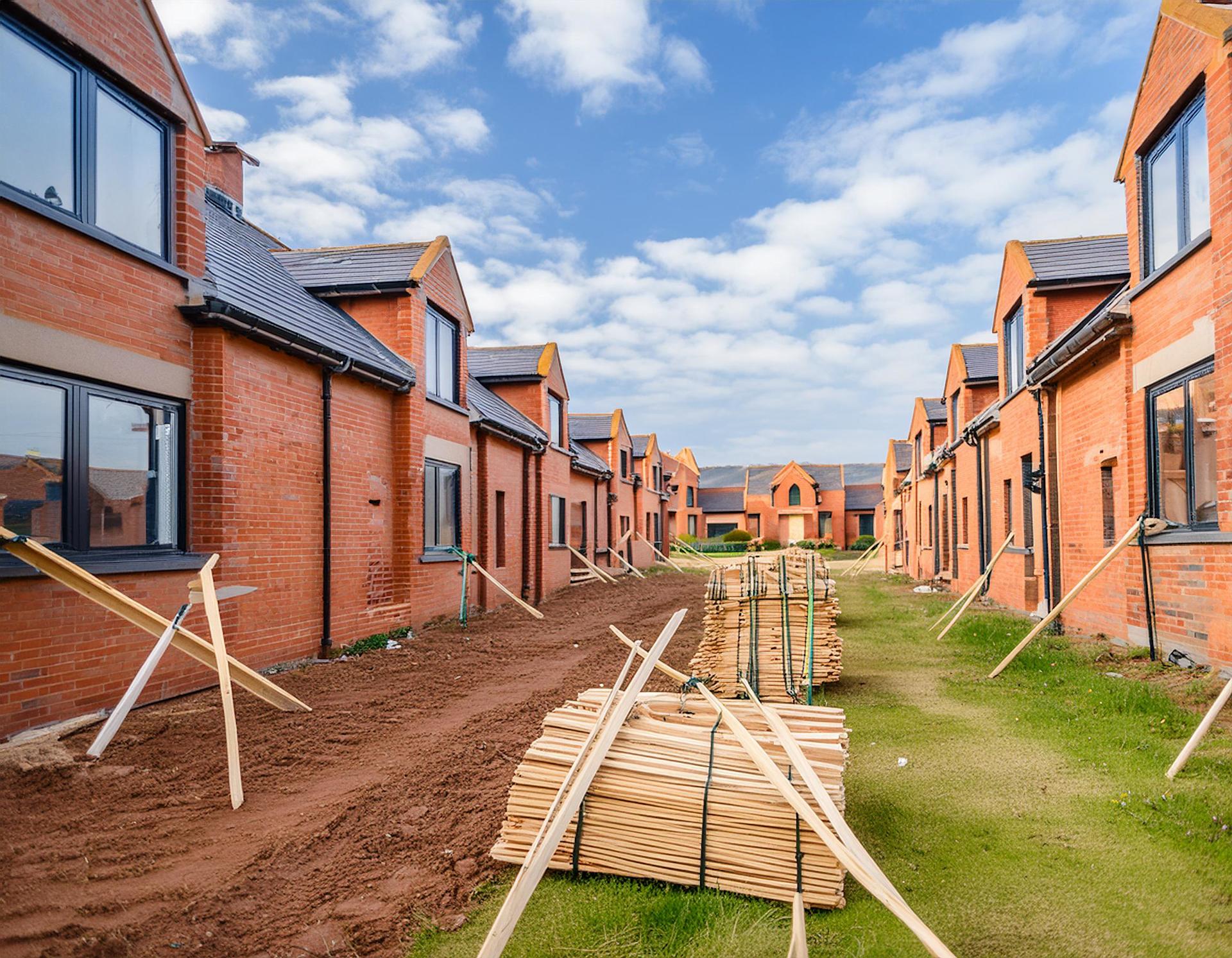
For property owners, understanding and meeting building regulations can be daunting from understanding what permissions are needed for renovations or building work to obtaining the right paperwork when selling a property.

In this article, we'll explore why building regulations are important and how you can go about getting approval for your building or renovation projects.
Table of Contents
- What are building regulations?
- What work is covered by building regulations?
- Do you need advance approval for emergency repairs?
- What happens if you don’t comply with building regulations?
- What is a Building Regulations Completion Certificate?
- How do you get building regulations approval?
- What is a competent person?
- How much does it cost to get building regulations approval?
- How long does it take to get a building regulations certificate?
- Why are Building Regulations Certificates important in property transactions?
- Can you get a retrospective building regulations certificate?
- What is the difference between building regulations approval and planning permission?
- Can you appeal a building regulations refusal?
- Get expert help with building regulation approval
What are building regulations?
Building regulations ensure buildings are safe, healthy, and environmentally friendly. They cover various aspects of construction, such as structural integrity, fire safety, energy efficiency, and accessibility.
Compliance with building regulations is mandatory for most construction projects to protect occupants and the public. Failure to comply can result in legal consequences and unsafe buildings.
What work is covered by building regulations?
Building regulations cover a wide range of construction and alteration work to ensure that buildings are safe and comply with set standards. Some examples of work covered by building regulations include.
Construction of new buildings, including houses, commercial properties, and industrial facilities.
Extensions and alterations to existing buildings, like adding extra rooms or changing the layout.
Installation or replacement of key systems, such as heating, plumbing, and electrical wiring.
Structural changes, like removing load-bearing walls or installing new beams.
Renovations that affect the building's structure, fire safety, energy efficiency, or accessibility.
Changes in building use, such as converting a residential property into multiple units or transforming a commercial space into residential apartments.
Installation of certain fixtures or fittings, including bathrooms, kitchens, windows, doors, and roof coverings.
It's essential to check with the local building control authority or a qualified professional to determine if your specific project requires building regulations approval.
Even if your project isn't explicitly listed, there may still be requirements to comply with building regulations, so thorough research and consultation are recommended.
Do you need advance approval for emergency repairs?
Typically, you do not need advance approval for emergency repairs to your property, especially if they're necessary to address immediate safety concerns or prevent further damage.
However, while advance approval may not be required, you should make sure that any emergency repairs comply with building regulations and other relevant laws.
Additionally, it's a good idea to keep records of emergency repairs, including details of the work done and any permits obtained, to demonstrate compliance with regulations in the event of future inspections or property transactions.
What happens if you don’t comply with building regulations?
If you don’t comply with building regulations, the local authority may take legal actions against you resulting in fines, penalties, or enforcement notices requiring you to rectify this issue. This means you may have to carry out remedial work to bring the building into compliance with building regulations.
Further, non-compliance with building regulations can make it difficult to sell or rent a property in the future and could invalidate your insurance coverage, leaving you financially vulnerable in the event of property damage or accidents.
What is a Building Regulations Completion Certificate?
Building regulations certificates are official documents that confirm a property's compliance with safety, health, and environmental standards set by building regulations. They serve as proof that construction or renovation work meets the required standards.
There are different types of building regulations certificates, including:
Completion certificates: Issued when construction work is completed and complies with building regulations.
Regularisation certificates: Retroactively issued for work that was done without proper approval.
Building control notices: Issued by building control bodies to outline specific requirements for compliance.
How do you get building regulations approval?
You can apply for building regulations approval through your local council or an approved inspector.
The type of application you submit depends on your planned construction, extension, or, alterations project:
Full Plans: This is the most thorough option, and you'll usually get a decision within 5 weeks.
Building Notice: Suitable for smaller projects, however, you won't receive formal approval as with full plans.
Regularisation: Suitable for retrospective approval for work done after 11 November 1985 without consent from a local authority BCB.
What is a competent person?
A competent person, in the context of building regulations, refers to an individual or company with the necessary skills, knowledge, and experience to carry out specific types of work safely and to a high standard. Competent persons are typically registered with a recognised scheme or organization that assesses their competence and provides certification or accreditation.
In the UK, competent persons may be registered with a competent person scheme recognised by the government. These schemes cover various trades and disciplines, such as electrical work, gas installations, and building construction.
Being registered with a competent person scheme allows individuals or companies to self-certify that their work complies with relevant building regulations, eliminating the need for separate approval from the local authority.
Using a competent person for building work provides assurance that the work will be carried out safely and in compliance with regulations, reducing the risk of errors, accidents, and non-compliance issues.
How much does it cost to get building regulations approval?
Local authority BCBs determine fees based on ite inspections, the type of work, the number of dwellings, and the total floor area. Private BCBs negotiate fees directly with you.
How long does it take to get a building regulations certificate?
If you apply with Full Plans, you’ll receive a completion certificate within 8 weeks of finishing the work if it complies with regulations.
Why are Building Regulations Certificates important in property transactions?
Building regulations certificates play a crucial role in property transactions by assuring buyers that the property meets necessary standards. They help establish the legality and safety of construction work, which can affect property value and the sale process.
Additionally, lenders may require these certificates as part of the mortgage approval process to ensure the property is a sound investment.
Can you get a retrospective building regulations certificate?
Yes, you can apply for a retrospective building regulations certificate, also known as a regularisation certificate. This certificate is issued by a local authority Building Control Body (BCB) and provides approval for work that has already been carried out without prior consent or approval.
To get a retrospective building regulations certificate, you must apply to the local authority BCB and provide details of the work that has been completed. The BCB will then assess the work to ensure it meets current building regulations standards.
It's important to note that not all work may be eligible for retrospective approval, and there may be limitations on the types of work that can be approved in this way. Additionally, you may be required to make alterations or corrections to the work to ensure compliance with building regulations before a regularisation certificate can be issued.
What is the difference between building regulations approval and planning permission?
Building regulations approval and planning permission aren’t mutually exclusive. If you’re carrying out construction work or changing a building in a certain way, you may need both.
Building regulations approval focuses on ensuring that the construction work meets specific safety, health, and environmental standards. It assesses technical aspects such as structural stability, fire safety, energy efficiency, and accessibility. The approval process typically involves reviewing detailed plans and specifications submitted by the applicant to ensure compliance with the relevant regulations.
On the other hand, planning permission primarily concerns the use of land and the impact of proposed developments on the surrounding area. It considers factors such as the appearance of the building, its impact on the local environment, and whether it aligns with local planning policies and regulations. Planning permission is required for most new construction projects, significant alterations, and changes in land use.
Can you appeal a building regulations refusal?
If the local authority or approved inspector refuses approval, you have the right to apply to the Secretary of State for a determination or submit an appeal. However, you can only use this procedure if you have submitted full plans.
In some cases, however, alternative dispute resolution may be a quicker, easier way to reach an agreement.
Get expert help with building regulation approval
A construction solicitor can provide expert guidance on the building regulation requirements applicable to your specific project. Further, they can assist in preparing and reviewing the necessary documentation for building regulation approval, such as application forms, plans, and specifications.
For those selling a property, a solicitor can also guide you on obtaining a regularisation certificate for works previously completed on your property.
To get started, contact our Legal Assessment Team today for a free case evaluation and fixed-fee quote for the services of a specialist lawyer.